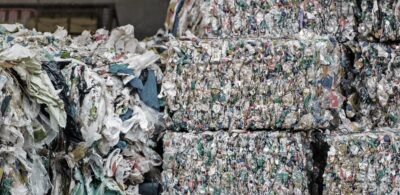Waste not, want not: levying Queensland's recycling and waste Strategy
22 June 2018
The Queensland Government has released a Directions Paper “Transforming Queensland’s Recycling and Waste Industry”, announcing the development of a more comprehensive waste management strategy (the Strategy). At the heart of the Strategy is a levy attaching to the disposal of waste.
Key aims of the Strategy include:
- the re-introduction of a Waste Disposal Levy (the levy);
- moving Queensland towards a circular economy by reinvesting proceeds from the levy into other waste and recycling initiatives;
- deterring dumping of interstate waste in Queensland; and
- ensuring there is no direct impact on Queensland households.
The Strategy will be informed by:
- the Recycling and Waste Management Stakeholder Advisory Group comprised of peak body representatives from industry, local government and the housing and business sectors which will, among other things, advise on the implementation of the levy;
- Waste data and reports; and
- Public consultation.
Waste disposal levy
The levy will apply to the disposal of all general waste streams and will attract an initial rate of $70 to $150 per tonne dependent on the classification of waste. This is proposed to increase by $5 per year.
Certain wastes, on application, will be exempt including waste from natural disasters, received by charities, collected by a local council or community group as a clean-up initiative or where disposal is required by regulation (i.e. asbestos). Similarly, waste disposed on-site where it’s produced and materials segregated for recovery at a landfill site will be automatically exempted.
It is proposed that the levy will come into effect in the first quarter of 2019.
Waste disposal levy zone
The Strategy proposes geographical zones where the levy will and won’t apply. The levy will not apply to certain rural communities, but it is expected that 38 of the 77 local government areas will be included in the levy zone. The creation of the levy zones aim to recognise the special needs of remote Queensland communities and remove the administrative cost of collecting, remitting and reporting against the levy. In order to avoid communities outside the levy zone becoming dumping grounds, waste that is brought into the zone where the levy does not apply will still incur the levy if this waste is disposed of. It is proposed that this will also include interstate waste if this creates an incentive to transport waste beyond South East Queensland.
The Queensland Government will provide an annual advance on levy charges to those councils that dispose of household municipal solid waste in the levy zone. To calculate the annual advance amount, the Directions Paper proposes a formula based on tonnage disposed of in the previous financial year.
If a local council makes savings in the amount of waste that is disposed of then any derived savings would be retained by council. Presumably, this provides local government with enough money to offset its levy costs, avoid passing costs on to households as well as providing additional funds to invest in reducing disposal of waste to landfill.
What does this mean for local government?
The operators of waste disposal facilities will collect the levy. The waste disposal facility may be operated by, or on behalf of, a local government or a private company. Operators are required to remit the amount of levy owed, as a timing, and through a process to be determined in legislation. In addition, operators will be required to submit data about what was received at site for disposal and what was segregated for recovery. Penalties may apply for failure to collect or remit payment and keep records.
Proceeds of the levy
The proceeds of the levy will filter to waste, environmental and community program funding. This includes data collection and programs essential for Queensland to meet the Strategy’s targets.
Submissions on the proposed Strategy are due by 5pm on Friday 29 June 2018.
The Directions Paper is available here and submissions can be emailed to [email protected]
If you wish to make a submission, here are some questions you may want to consider:
- Should there be a Waste and Recycling Commissioner to administer the Strategy?
- What measures will be put in place to ensure that the levy zones are appropriately monitored?
- How will the proceeds of the levy be regulated so that it feeds back into Queensland’s waste and recycling initiatives?
Authors

Partner
Tags
This publication is introductory in nature. Its content is current at the date of publication. It does not constitute legal advice and should not be relied upon as such. You should always obtain legal advice based on your specific circumstances before taking any action relating to matters covered by this publication. Some information may have been obtained from external sources, and we cannot guarantee the accuracy or currency of any such information.


